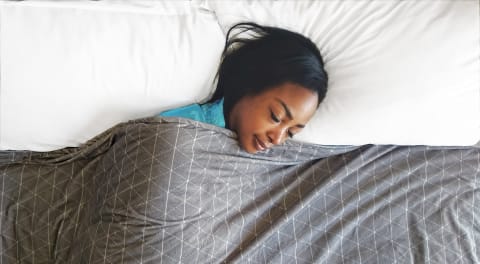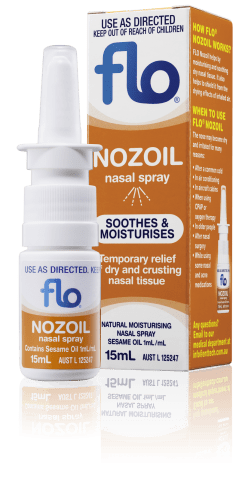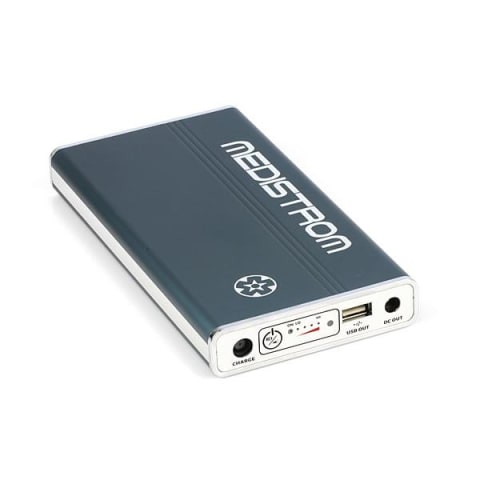Micro CPAP Machine
Micro CPAP Machines
Micro CPAP machines are a relatively new and experimental category of sleep apnea therapy and CPAP device. These are extremely small, lightweight units that fit inside or on the nostrils and are designed to offer a more discreet, travel-friendly solution compared to traditional machines. They aim to eliminate hoses, bulky masks, and the need for external power cords by using compact internal components.
However, as of now, there are no clinically approved micro CPAP machines that are effective alternatives to traditional CPAP therapy. Some products, such as the Airing Micro-CPAP, have gained public attention for their compact, hoseless design but remain unapproved by regulatory bodies such as the FDA and have not been proven to deliver effective therapeutic pressure for obstructive sleep apnea.
Devices currently marketed as “micro CPAPs” typically rely on passive airflow mechanisms or internal fans that do not deliver the consistent, motor-driven positive airway pressure needed to prevent airway collapse. Medical experts have raised concerns about their ability to treat moderate to severe OSA safely or effectively.
Additionally, because micro CPAPs do not typically include data tracking or comfort-enhancing features like ramp-up or pressure relief, users may find the therapy feels less refined or harder to tolerate over extended periods. The absence of airflow humidity can also lead to nasal dryness or congestion.
Some compact, FDA-approved travel CPAPs, such as the compact ResMed AirMini, do exist and offer clinically validated treatment in a smaller form factor. However, it’s essential not to confuse these legitimate travel CPAPs with unregulated “micro CPAP” devices that lack motors and medical oversight.
Important note: Always speak with a qualified clinician before trialling any new sleep apnea device. At Sove CPAP Clinic, we prioritise your safety and only recommend treatments supported by evidence and clinical approval.
Traditional CPAP Machines
Traditional CPAP therapy remains the gold standard for treating obstructive sleep apnoea. These machines use a motor to generate positive airway pressure, which is delivered via tubing and a comfortable mask. Unlike micro CPAPs, these devices are highly customisable, medically tested, and supported by decades of clinical research.
Devices such as the ResMed AirSense 10 AutoSet and Philips DreamStation Auto offer automatic pressure adjustment, built-in humidification, data tracking, and comfort settings such as ramp time and expiratory relief. These features allow your therapy to adapt to your breathing in real time while also enhancing comfort and usability.
Benefits of traditional CPAP therapy include:
- Reliable delivery of air pressure at clinically effective levels
- A wide range of mask options (nasal, full face, pillows)
- Data tracking and integration with mobile apps (e.g. ResMed myAir)
- Customisable comfort settings (humidification, pressure relief, ramp time)
- Proven improvement in sleep quality, daytime energy, and overall health
If you travel frequently, traditional CPAP manufacturers also offer compact travel-friendly models like the ResMed AirMini. This device offers many of the same features as its larger counterpart in a much smaller footprint—making it an excellent alternative to untested micro CPAP devices.
Another key advantage of traditional CPAP therapy is the longevity of treatment success. With the ability to monitor long-term data and adjust therapy as health needs change, these machines offer a sustainable solution. Whether it’s increasing pressure due to weight gain or adjusting humidification during seasonal changes, the adaptability of traditional CPAP ensures patients remain in control of their sleep health.
While traditional machines are larger, they have been engineered to prioritise comfort, effectiveness, and long-term success. If you’re serious about managing sleep apnoea, a well-fitted CPAP system remains the most reliable path forward.
Trusted CPAP Solutions Across Australia
When it comes to choosing the right therapy, professional support makes all the difference. Sove CPAP Clinic is proud to provide trusted, evidence-based CPAP solutions to patients across Australia. We only recommend devices and accessories that are approved by regulatory health bodies and backed by scientific research.
Whether you’re starting CPAP for the first time or upgrading your current setup, our team offers personalised guidance at every step. We support top brands such as ResMed and Philips, known globally for their reliability and innovation. Our clinics stock a range of machines and accessories, including:
- Full-sized and travel CPAP machines
- Custom mask fittings for optimal comfort and seal
- Replacement cushions, filters, tubing, and humidifier chambers
- Portable battery solutions for camping or emergency use
Getting the right mask fit is also just as important as selecting the right machine. A poor-fitting mask can lead to leaks and discomfort, reducing the effectiveness of your therapy. Sove’s fitting process ensures your mask matches your facial structure, sleep habits, and breathing style.
We also recognise that comfort is subjective, which is why we offer mask trials and flexible machine configurations. Whether you prefer nasal pillows or a full-face mask, or you need a machine with extra humidification due to a dry climate, our team can tailor a solution that works for your lifestyle.
ALWAYS FOLLOW THE DIRECTIONS FOR USE. CPAP is used for Obstructive Sleep Apnoea treatment. When considering whether a sleep study or CPAP is right for you, speak to your doctor. Medicare criteria and T&Cs apply.
Frequently Asked Questions
Do Doctors Support and Prescribe the Use of Micro CPAP Machines?
Currently, most doctors and sleep specialists do not support or prescribe the use of micro CPAP machines as a primary treatment for sleep apnea. While some devices have gained attention for their small, maskless designs, these products have not received clinical approval or regulatory clearance from major bodies such as the FDA or TGA.
Because of the lack of consistent pressure delivery and absence of safety testing, most sleep professionals consider them ineffective for treating moderate to severe OSA. It’s important to distinguish between unapproved micro CPAPs and FDA-approved compact travel CPAPs like the Transcend Micro Auto CPAP, which deliver legitimate therapy.
Before considering any device, we strongly advise speaking with a sleep physician. At Sove CPAP Clinic, we only recommend treatments that are proven to be both safe and effective.
Are There Different Sizes or Adjustability Features for Micro CPAP Machines?
Most micro CPAP devices are not designed with multiple size or adjustability options. They generally follow a “one-size-fits-all” model and lack the ability to adapt to individual anatomical differences or therapeutic needs. This is a stark contrast to traditional CPAP systems, which come with a range of mask types and offer personalised pressure adjustments.
Without options for fine-tuning, micro CPAP devices may not seal well or provide the therapeutic effect needed for successful treatment. Approved CPAP systems, by comparison, allow precise calibration and mask fitting—both essential for comfort and long-term success.
Do Micro CPAP Machines Make Noise?
While micro CPAP devices are often marketed as noiseless or whisper-quiet, real-world experience tells a different story. Many use passive airflow mechanisms that can generate hissing or whistling sounds, especially in the absence of a sealed mask system. This can be noticeable to both users and their sleep partners.
By contrast, traditional CPAP machines like the ResMed AirSense 10 operate at noise levels below 30 decibels—quieter than a whisper. These devices use refined motor technology designed for silent operation throughout the night, even at higher pressures.
For a reliably quiet sleep environment, traditional CPAP systems continue to outperform unapproved micro alternatives.
How Do Micro CPAP Devices Generate Airflow Without a Motor?
Micro CPAP devices that lack a motor typically rely on passive airflow resistance or tiny fans driven by the user’s own breath. However, this method falls short of producing the constant, regulated pressure required to treat obstructive sleep apnea effectively.
In contrast, traditional CPAP machines use precision motors and advanced algorithms to maintain therapeutic pressures based on your sleep stages and breathing. This ensures a consistent flow of air to prevent airway collapse—something passive devices simply cannot match.
Until clinical trials show otherwise, motorless micro CPAPs should not be considered a replacement for traditional, medically-approved therapy.
Are Micro CPAP Devices Durable and Reusable?
Micro CPAP devices tend to be made with compact, minimalist parts, and often lack the durability seen in medical-grade equipment. Most are not designed with replaceable filters, seals, or components, raising concerns about hygiene and wear over time.
Traditional CPAP machines are built for long-term use. They include serviceable components and cleaning accessories, allowing users to maintain performance and hygiene over years of use. Brands like ResMed and Philips design their systems to last, with support for parts replacement and ongoing care.
Do Micro CPAP Machines Have a 30-Day Money-Back Guarantee?
Some online retailers advertising micro CPAP devices may offer a money-back guarantee, but these offers often come with vague or restrictive terms. Return policies for unapproved products may lack transparency, and refund processes can be slow or unreliable.
By contrast, approved CPAP providers like Sove CPAP Clinic offer risk-free trials on selected machines and masks, along with reliable return policies that prioritise your comfort and safety. If your current therapy isn’t working, we’ll help you find an option that does—without hidden conditions or unnecessary delays.













